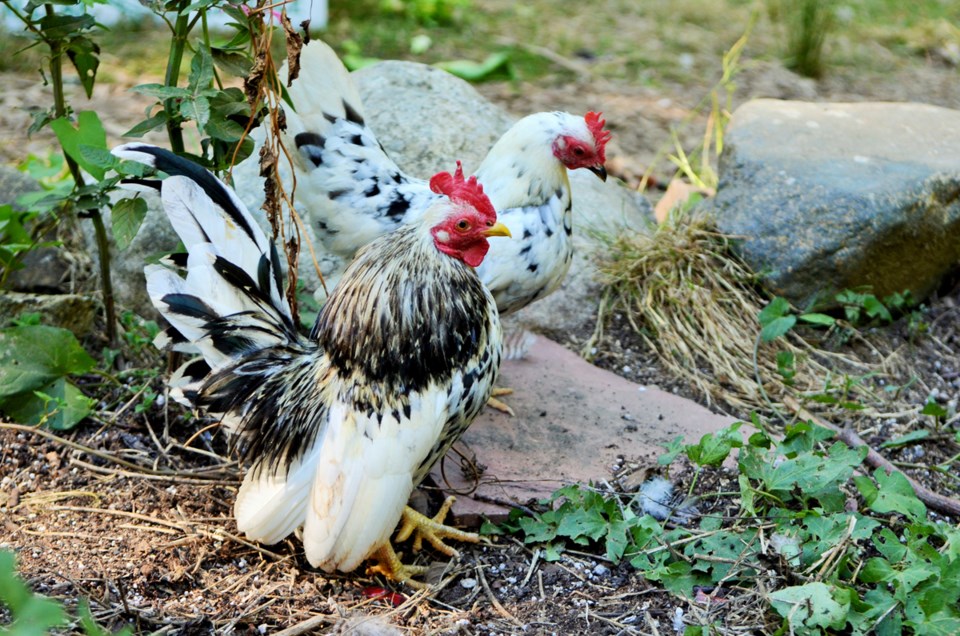At the top of Nickerson Road in West Sechelt and tucked under the power lines is a poultry farm humming with the clucks of more than 100 fowl. “We mostly focus on rare and endangered breeds,” said Chad Brignall of Sechelt Poultry. Those breeds include the Sarama, a breed of chicken so tiny the chicks are comparable to toonies, and Indonesia’s jet black Ayam Cemani.
Brignall calls chicken breeding his addiction and he plans to spread that fervour at Roberts Creek Hall this Saturday, Aug. 25 at the Coast’s first-ever poultry swap. He’s organizing the event to raise money – and eggs – for the Sunshine Coast Food Bank.
Brignall says he got the idea while visiting a poultry swap with his son and daughter in Aldergrove on the Lower Mainland. He said the Sunshine Coast has at least 100 poultry farms, enough to sustain its very own event.
Swaps are a mix of tailgate party and farmers’ market. Vendors show up with birds and participants bargain a price or make a trade – and it’s not just about the chickens. “There’s always pheasants, peacocks, turkeys, geese, rabbits,” Brignall said.
Many use swaps to introduce diversity into their flocks, start their own flocks and to score deals. He is hoping at least 20 vendors will sell birds at Roberts Creek Hall. Vendors unsure about selling or buying livestock are encouraged to bring along other goods. “They can come and sell an incubator or books or eggs,” Brignall said. Representatives from WildSafe BC will be on site.
Brignall is also laying plans to use the swap as a launching pad for a monthly egg donation for the Sunshine Coast Food Bank. He is hoping farmers will donate a couple dozen eggs every two weeks, which would then be delivered to the food bank.
“I’ve been a recipient of the food bank. We’ve been in that line, we see how fortunate the people are to get the stuff the food bank gives out,” said Brignall of his motivation for launching the program.
Norm Blair, food security lead for Sunshine Coast Community Services, which runs the food bank, said that if it works, the donation program could save the food bank up to $5,000 annually. The food bank purchases about 110 dozen eggs a month to distribute to some of the 652 registered households that use the food bank. “That’s food security in action,” said Blair, who says the food bank tries to purchase local eggs.
For swap rookies, Brignall advises showing up early.
“They don’t last long because all the good birds get bought up,” he said.



